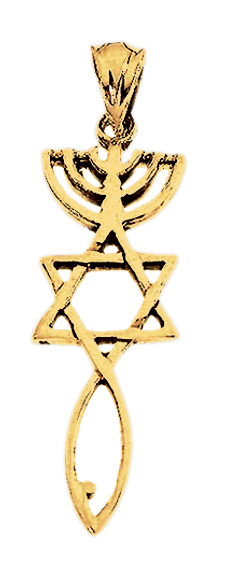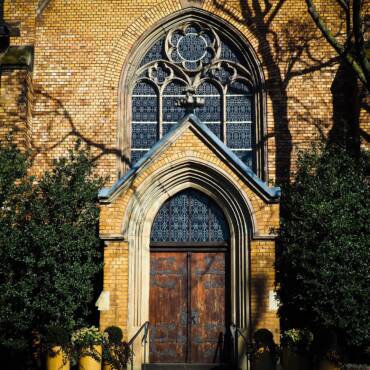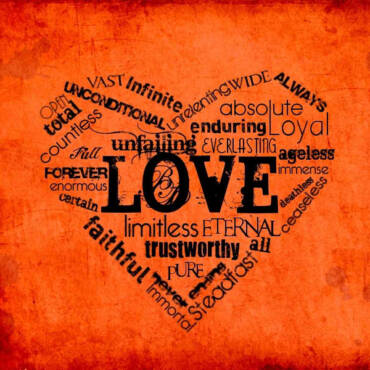Happy Elul in the Messiah!

By Sam Nadler
The 6th month of Elul, is traditionally a month of spiritual preparation with a view towards the 7th month of Tishri when the Feast of Trumpets (aka, Rosh Hashanah, New Year), Yom Kippur (Day of Atonement) and Sukkot (Feast of Tabernacles) are observed.
For most Messianic believers, these Fall Feasts all point us towards the culminating work of King Yeshua the Messiah. Since Trumpets is intended to ready believers for our dramatic change at the Last Shofar (1 Cor 15:51-52), Yom Kippur previews Israel’s national revival through faith in Yeshua the Messiah (Isaiah 53; Zechariah 12:10) and Sukkot looks to all nations glorifying King Yeshua in Jerusalem (Zechariah 14:16). Elul’s spiritual prep may be a very useful yearly reminder for all believers who are looking for the Lord’s finale rally.
Traditional Jewish thinking, recognizing the horrific impact of sin, sees the need for 3 levels of forgiveness to be attained, not just with God but also between people; these 3 levels are called:
1) Selichah (pardon), 2) Mechilah (wiping away), and 3) Kapparah (atonement).
1) Selichah is a common word in Israel for “pardon” or “excuse me” that you’d hear me say when walking through the crowded streets of Tel Aviv or Jerusalem. This is traditionally considered the first step someone takes if a sin has been committed, whether against God or man. What is commonly taught is that one asks for forgiveness, saying to the offended party, “I am sorry for what I did; I sincerely regret having done it, and will not do it again.” It is traditionally considered proper to accept another person’s sincere apology.
2) Mechilah (“wiping away”) traditionally addresses the request, “Can we normalize our relationship back to before I offended you?” In this level the relationship gets a “reset button.” This is accepted that God not only forgives, but also forgets. For people, though, it’s considered much more difficult than selichah, but since we’re created in the image of the One who can truly do this, it’s not thought of as impossible and assumes that there can be full acceptance of the repentant offender by the forgiving offender. Admittedly, most people would think of this as idealistic and, therefore, feel much safer saying, “I’ll forgive, but I’ll never forget!”
3) Kapparah is usually translated as “atonement” (as in Yom Kippur). In traditional Jewish circles “kapparah” completes this three-part process on Yom Kippur. This level of repentance and forgiveness is considered the deepest of all because it addresses the offending person’s guilty conscience. This recognizes that only God can heal and comfort the conscience of a person. We see that, as in most traditional religions, the sages can recognize the sinful tragedy of the human condition and try to offer certain solutions. In doing so, they overlook the actual and bigger problem: the depravity of human nature because of the horrific impact of sin.
Regrettably, the offended and offender are both much more corrupted and hard-wired to iniquity that we might guess and God reveals: “The heart is more deceitful than all else and is desperately sick; who can understand it?” (Jeremiah 17:9). Therefore, we are all as unable to fulfill the traditional prescription for sin as we were unable to obey the holy commandments that would have made the process of forgiveness unnecessary! Many can identify the problem, but not know the real “soul-ution.” This is where God stepped in and provided the cure to redeem an utterly lost and eternally doomed humanity. What is that divine cure? The Messiah of Israel!
Let’s see how Yeshua helps us fulfill every level of forgiveness in His one atoning death, and then let’s understand the faith challenges we have as we spiritually prepare during the month of Elul to rejoice in His festivals.
1) As for “selichah” (pardon), only in Messiah’s atonement are we fully forgiven and pardoned by God. Despite the traditional teaching, our sins are only atoned for and forgiven by the graciously provided blood sacrifice. This is clearly taught in the Torah of Moses: “For the life of the flesh is in the blood, and I have given it to you on the altar to make atonement for your souls; for it is the blood because of the life that makes atonement” (Leviticus 17:11).
In Yeshua the Messiah’s sacrificial atonement “we have redemption, the forgiveness of sins” (Colossians 1:14). Are we sure? Yes! Messiah’s bodily resurrection from the dead was the Father’s eternal assurance to us all that He accepted Messiah’s death as our full atonement for the sins of all who believe in Yeshua (see Romans 4:24-25)!
2) As for “mechilah” (wiping away), only in Messiah’s atonement are we fully reconciled with God. In Messiah’s atoning death, not only do we have the full payment for our sins but we also have the full cleansing of our sins, “for the blood of Yeshua, His Son, cleanses away all our sins” (1 John 1:7). Therefore, we live “to the praise of the glory of His grace by which He has made us accepted in the Beloved” (Ephesians 1:6). In fact, “God reconciled us to Himself through Messiah and gave us the ministry of reconciliation” (2Corinthians 5:18). For those of us that are eternally reconciled we are now also enabled to declare that reconciliation and, in so doing, with His love “we beg” others “through Messiah to be reconciled to God” (2 Corinthians 5:20).
3) As for “kapparah” (atonement), only in Messiah’s final atonement are we fully cleansed like God that is, by Yeshua’s atoning death in our place, we are perfectly sanctified “once and for all” (Hebrews 10:10, 14). We share in God’s own holiness! Despite traditional rabbinical opinion to the contrary, “kapparah” literally means “covering” – that is, each faithful sacrifice was a good faith promissory note that Yeshua’s death would ‘pay off’ and fulfill.
Previously those sins were only ‘covered’ so our sins would not be ‘seen’ by God and cause Him further offense. However, our actual “cleansing away” and removal of our sins is only provided by God in the true atonement of Messiah. We’re saved to the core of our being, to the full cleansing and healing of our souls. The New Covenant, as prophesied in Jeremiah 31:31-34 and reiterated in Hebrews 8:8-12, is based on Messiah’s atonement, whereby God will “forgive our sins and remember our iniquities no more” (31:34).
Messiah’s atonement alone has the power for each us to not only forgive and forget those sins perpetrated against us but to forgive and forget our own sins by a cleansed conscience! “So, if the blood and ashes of animals were used to sanctify, for the cleansing of the flesh, how much more so through the blood of the Messiah, who, through the eternal Spirit, offered himself to God as a sacrifice without blemish, will purify our conscience from works that lead to death, so that we can serve the living God” (Hebrews 9:14). Yes, by the same grace in Messiah’s death that we’re forgiven are we by that same grace enabled to forgive and accept ourselves!
During the month of Elul, our spiritual prep is to grow through each of these areas by the perfect atonement of Messiah. Here are three challenges to help grow and be further prepared for the glory that the Fall Feasts anticipate:
1) For the Elul challenge of “selicah” (pardon), let’s remember a principle Yeshua taught to a religious person who thought himself better than others and, therefore, was not hospitable, let alone loving to Messiah: “her sins, which are many, have been forgiven, for she loved much; but he who is forgiven little, loves little” (Luke 7:47). If you think that you only had a few ‘misdemeanor sins, and, therefore, needed little forgiveness, you will love God and others little. However, to the degree you recognize your own depravity and the full forgiveness for your many sins thru Messiah then to that degree will you fully love God and others. His degree of forgiveness of you is revealed in your love for Him and others.
2) For the Elul challenge of “mechilah” (wiping away), let’s better appreciate the full acceptance and reconciliation with God as we, by that same grace, accept others: “Therefore, accept one another, just as Messiah also accepted us to the glory of God” (Romans 15:7). When you cannot fully accept other repentant offenders by the grace in Messiah that you’re accepted, you may not appreciate your own acceptance in Messiah, for you only see the speck in another’s eye because of the log in your own eye! Confess your log size sin so you can accept your brother or sister with their speck-size sin. His fully accepting grace of you in Messiah is understood by you when you can accept others fully in Messiah as well.
3) For the Elul challenge of “kapparah” (atonement), let us commit to grow still more in His love and grace through faith atonement, so that we can forgive and accept ourselves in Messiah’s atonement as we are forever forgiven by God. We will then come to God, not out of guilt, but out of love and joy with a blood-cleansed conscience: “let us draw near with a sincere heart in full assurance of faith, having our hearts sprinkled clean from an evil conscience and our bodies washed with pure water” (Hebrews 10:22).
For Messianic believers, because of Yeshua’s atonement, guilt is never God’s will for you. If the Spirit reveals an area you need to grow further in, agree with God (i.e., “confess to God”) that our immaturity, carnality and moral weaknesses are contrary to God’s character, thanking Him for Messiah’s cleansing, and ask Him to help you spiritually grow still more to His glory.
As you are being “conformed to the image of the Son” (Romans 8:29), this is how we can stand up to “the accuser of the brethren” (Rev 12:10) when he tries to bring a charge against our conscience for sins already forgiven in Messiah. It is also how we deal with the residual effects of our sins, for “if our heart condemns us, God is greater than our heart knows all things. Beloved, if our heart does not condemn us, we have confidence before God!” (1 John 3:20-21).
This is how the mature Messianic believers live, as Paul states, “I do not even examine myself. For I am conscious of nothing against myself, yet I am not by this acquitted; but the one who examines me is the Lord” (1 Corinthians 4:3-4).
It’s not that Paul thinks that he is flawless, but he is fully assured that he is already fully acquitted by Yeshua who paid for those sins. So, during this month of Elul, as we anticipate the blessed Fall Feasts, let’s grow into God’s full forgiveness of our lives in Messiah to be more fully acknowledged as we more fully love Him and others. As we more fully accept others as we are graciously accepted in Messiah, and as we grow a bit more by our cleansed consciences in Yeshua beyond residual guilt, and rather to rejoice in the presence of the King and Holy One of Israel both this fall festival season and forever!



